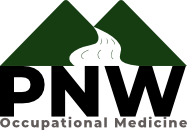Ensuring the health and safety of your employees is paramount. For those in industries that require commercial driving, DOT Physicals Kennewick play a crucial role in maintaining this balance. In this blog, we’ll explore how these evaluations contribute to healthier employees and a safer workplace.
The Essentials of DOT Physicals
DOT Physicals are mandatory health assessments required for professionals operating commercial vehicles. They determine a driver’s overall fitness to safely carry out their duties and are crucial for mitigating any health-related risks. These physicals encompass a comprehensive evaluation of a driver’s health, including cardiovascular health, vision, hearing, and more. At PNW Occupational Medicine, these exams are conducted by experienced professionals who recognize the vital role of these drivers in ensuring road safety.
The process of a DOT Physical is methodical yet straightforward, ensuring that all aspects of a driver’s physical and mental health are examined. The stringent criteria set by the Department of Transportation are vital for maintaining not only the safety of the drivers but also that of other road users. With the high stakes involved in commercial driving, especially those who regularly traverse long distances, understanding the physical demands on drivers is critical. Regular DOT Physicals serve as a preventive measure against unexpected health crises on the road.
Drivers must schedule these examinations at regular intervals to maintain their certification. However, at PNW Occupational Medicine, we understand the busy schedules of commercial drivers, which is why our process is designed to be as efficient as it is thorough. Streamlining appointment scheduling, combined with advanced testing methodologies, caters to both the urgency and the detailed nature of these assessments, ensuring that results are delivered swiftly, allowing drivers to get back on the road without unnecessary delays.
Health Benefits for Employees
Beyond merely fulfilling regulatory requirements, DOT Physicals offer significant health benefits to employees. By undergoing regular physical evaluations, employees can proactively understand and manage their health. Such evaluations often reveal health issues that might not have been apparent, allowing for early interventions. This proactive approach to wellness is a cornerstone of occupational health services like those offered by ProCare Occupational Health.
By implementing frequent health assessments, companies facilitate early detection of potential health risks, such as diabetes or hypertension, notorious for being silent threats. Such foresight not only enhances the well-being of employees but also reduces the likelihood of these conditions affecting the workforce adversely in the long term. Early intervention and management can significantly enhance an individual’s quality of life, decreasing absenteeism and promoting a more enthusiastic approach to work.
The health insights gained from DOT Physicals are invaluable. Employees can leverage this understanding to make informed lifestyle choices, such as maintaining a balanced diet, engaging in regular exercise, and managing stress better. The impact of these choices extends beyond personal health, as healthy employees are often more energetic, focused, and engaged at work. Initiatives such as health screenings and physical exams provided by specialists like PNW Occupational Medicine highlight the intrinsic link between regular health assessments and overall employee well-being.
Improving Workplace Safety
Safety in the workplace, especially in sectors involving extensive travel and commercial driving, cannot be emphasized enough. When drivers participate in regular DOT Physicals, it significantly lowers the risk of accidents on the job. Healthy drivers are not only more alert and determined but are also more competent in their tasks. These exams directly impact workplace safety and operational efficiency, ensuring that companies can operate smoothly with reduced risk of accidents.
Maintaining a robust and proactive stance towards occupational health programs ensures that employees are not only physically fit but also mentally prepared for the demands of the job. A fully fit and alert workforce can substantially avert potential work-related incidents, thereby fostering an atmosphere of trust and security among employees. Companies, recognizing this vital aspect, often incorporate regular DOT evaluations into their safety strategies to avoid the debilitating impacts of workplace injuries and accidents.
Moreover, consistent focus on workplace safety through health assessments reinforces a culture of care and accountability within organizations. When employees see their employers investing in their health and safety, it cultivates a responsible and vigilant work environment. This not only enhances the individual safety of drivers but also contributes to the security of goods transported, which in turn strengthens client trust and the company’s market reputation.
Enhancing Employee Productivity and Satisfaction
Healthy employees are typically more productive and satisfied with their roles. The correlation between job satisfaction and health is well-documented, with numerous studies illustrating that workforce health directly impacts productivity. Regular DOT Physicals address potential health concerns proactively, ensuring that medical issues do not escalate into major disruptions. This focus on preventive care not only fosters a positive work culture but also results in happier, more motivated employees.
Employees who feel cared for are more likely to be engaged and committed to their work. By demonstrating a commitment to employee wellness through regular health evaluations, companies can improve morale and increase retention rates. Employees who undergo health assessments often report feeling valued and understood, aware that their employers are invested in their overall well-being beyond the confines of traditional work responsibilities.
Additionally, workplace wellness programs, such as those emphasizing regular health assessments, can uncover issues like potential burnout or stress, notorious productivity killers. By addressing these proactively, companies not only boost productivity but also foster a thriving workplace environment. Employees who see their employers taking tangible steps toward wellness reciprocate with increased loyalty and commitment.
Legal and Regulatory Compliance
Compliance with federal regulations is a non-negotiable aspect of operations for companies engaged in the transportation sector. DOT Physicals are integral in ensuring that organizations uphold these regulations, thereby avoiding costly penalties and legal issues. By adhering to these standards, companies display a responsible approach to employee health management, something that PNW Occupational Medicine exemplifies brilliantly.
Remaining compliant can often be a daunting task given the intricate landscape of DOT regulations. However, companies that prioritize and continually update their compliance protocols find themselves at a strategic advantage. Not only does this minimize legal risks, but it demonstrates a commitment to public safety. Employers can thus focus on growing their core operations with the assurance that all regulatory bases are covered.
Moreover, attention to compliance also underscores an organization’s dedication to ethical operations. Businesses that actively participate in regulatory adherence are often viewed more favorably within their industries and by consumers. Furthermore, compliance aids in building strong relationships with regulatory bodies, ensuring smoother operational processes and enhanced goodwill in the business environment.
Emphasizing Health and Safety Through DOT Physicals
DOT Physicals Kennewick not only ensure compliance with federal regulations but also promote a healthier and safer working environment. By prioritizing employee health through these regular assessments, companies can reduce risks, boost productivity, and foster a supportive workplace culture.


